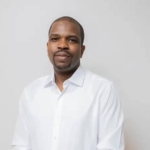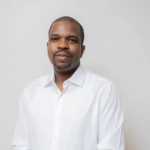
I want to provide you with a vivid illustration to demonstrate that we have completely misdiagnosed the galamsey crisis. Galamsey is first and foremost a land rights issue, and it is far more of a socio-economic problem than the environmental consequences we are so fixated on.
Let us assume I am from the Gyasi family, located in Buabinso, a suburb of Dunkwa-Offin in the Upper Denkyira East District of the Central Region. I am a cocoa farmer who specializes in cultivating this crop. I farm on a portion of ancestral land inherited matrilineally. I struggle to make enough money to care for my four children and three grandchildren. I am a school dropout and lack the skills required to enter the police, military, or fire service. I also lack the necessary academic qualifications to work in the civil service.
Even so, I have managed to see three of my children through secondary school. Two have completed their university education, and the third has finished a polytechnic program. It has been six years since the first graduated, yet he has not secured a single job. The other two have joined him at home while I continue to toil on the farm with their younger brother, who dropped out of high school and now helps me in my farming activities. We are constant voters, and we belong to a political party.
Over the past six years, I have approached numerous people from both my own political party and others to seek help in finding employment for my three highly educated children, which would ease my financial burden. I am sixty-five years old and approaching the twilight of my life, while my health continues to decline.
Then, about a year ago, I was at home when one of my sons rushed in with the news that the government, together with some development partners, had discovered vast deposits of gold on our ancestral land. At first, I did not understand what that meant at all. My sons sat me down and explained everything in detail. By that time, the Chinese had already occupied a nearby town, and I was told they had been sent there by the government to mine gold.
Three of my children’s classmates, having learned a great deal about the immense value of gold and how it can transform one’s economic fortunes, decided to team up with my three sons to engage in their own small-scale mining. They began selling their gold to the Chinese and other buyers who had flooded the town in search of the mineral. Initially, several people approached me to lease my land for farming, but my children warned me that if I did, I would be a fool because they would only use it for galamsey.
Due to my financial struggles, I eventually decided to lease a small portion of the land to some Chinese men for a substantial amount of money. It was money that I had never imagined in my entire life. With that money, I paid for my only daughter’s education abroad, where she pursued her master’s and doctorate studies in Canada. My life changed completely. I now live decently and even pay my tithe in church. My children’s financial situation has improved significantly. Even my last-born, who once worked with me on the farm, has stopped farming and recently married his beloved girlfriend.
Our lives have been transformed, and so have the lives of many others around us. But about a week ago, a government task force arrived in our community with a convoy of armed soldiers. They accused us of mining gold illegally and said that, unlike the Chinese, who had obtained a lease, we did not have any permit to mine. We had no excavators, yet they claimed that the chemicals we were using to wash the gold were polluting rivers and killing many Ghanaians.
I was not the only one arrested. Many others from my suburb who were also mining were taken away. The entire community was upset. After a few days in jail, we were released and warned never to return to mining. But how can this make any sense? This is our own land. Our land was not leased to people to grow marijuana. It is our ancestral inheritance, passed down through generations.
This government, apart from its interest in gold, has never been a significant presence in our lives. Where was the government when I was hungry and could not afford a single meal? What has the government done for me, for my family, or for my town? If they say our rivers will dry up and the chemicals will kill us, should we not at least eat first before dying?
Meanwhile, the Chinese and other foreign companies operating in nearby villages continue to work freely. Why does the government not go after them instead of harassing us? How many jobs has the government created for my children and me? How many of my children, despite trying five times, have been admitted into the police or customs service? Was it not that my children were only told repeatedly that recruitment is reserved for “protocol people”? Even the chiefs in my town and nearby communities are poor and share our struggles. I am sure they, too, would engage in galamsey if the Chinese approached them.
This is the stark reality facing people in mining communities. Money is blood, and gold is money; therefore, gold is blood. The legal and environmental arguments that people make from their offices in Accra may sound logical to them, but they do not touch the heart of the problem. The galamsey fight cannot be won through legal documents or environmental lectures. It cannot be solved by chemists, physicists, climatologists, or geologists. It can only be won when we stop victimizing the victims and confront our own hypocrisy.
Many of the scientists and policymakers who make loud and outrageous calls for drones, cannons, guns, helicopters, and military garrisons to fight galamsey are not from multidisciplinary backgrounds, and I do not blame them. This is not their domain. Galamsey is fundamentally a land rights issue, and, for that matter, a socio-economic problem that far outweighs the environmental effects they are fixated on. If you revisit the works of Gavin Hilson, Frimpong, Crawford, Botchwey, Ofosu-Mensah, Aubynn, Banchirigah, Teschner, Yakovleva, Hilson, and Garforth, as well as Armah, you will understand that we have all misdiagnosed the galamsey malady. And how can you treat a condition when you have misdiagnosed it?
This erosion of traditional authority has been documented by scholars such as Hilson (2002), Aubynn (2009), Crawford and Botchwey (2017), Banchirigah (2008), Ofosu-Mensah (2010), Yakovleva (2007), Hilson and Garforth (2013), Armah et al. (2016), Frimpong (2015), and Teschner (2012). They all emphasize that the human face of galamsey reflects poverty, exclusion, and the disconnection between governance and grassroots livelihoods. These scholars demonstrate that when mining is stripped of its social and cultural context, the people left behind become desperate. Chiefs, as Dei (1994) also argues, remain the closest institutional hope for reconciliation between land, people, and sustainability.
The truth is that the government is the real culprit. The government is the enemy. The government has failed us all. Galamsey is not about greed or avarice. It is the politicians who have infiltrated it that are greedy. The real people, the poor and suffering indigenes, are not greedy; they want to survive on their own ancestral lands.
Look at this endless cycle of hypocrisy. Ask yourself how many NPP politicians involved in galamsey during their time in office were ever prosecuted. None! Ask again how many NDC politicians engaged in galamsey today will ever face prosecution under their own government. Do you think the president will prosecute Collins Dauda? That will never happen because it is not politically convenient. Even if he detests it, he will not act, and much to my chagrin, wait for the white paper release at the press conference in a few days to come. The narrative would change; Dauda would become the victim, and party jingoists would claim that the whole story was a setup by members of the opposition. That is the kind of democracy we love and cherish in Ghana! It is a political chess game. Political decisions always come with political considerations. The NDC will not hang itself on the gallows, and so the circus continues in an endless gyration.
This is why I keep saying that the only institution left with some moral and cultural legitimacy to help restore our lands and cleanse our water bodies is the chieftaincy institution. Some chiefs may be corrupt, but they are more concerned about the urgency of the matter than politicians who are far removed from the realities of the people. The chiefs are extensions of the daily experiences of the people, and they live among them and are related to them. The government, on the other hand, is distant and detached. People mistrust the government much more than they mistrust their chiefs. Chiefs may be corrupt because their hands are tied. Most are poor and live on nothing in the midst of vast material prosperity. On top of this, the modern government has stripped them of their powers. A chief’s voice in his traditional area today carries no political or legal weight; it is an empty cry.
If Ghana truly wants to win the fight against galamsey, it must begin by returning dignity and authority to the traditional institutions that anchor our communities. Chiefs must be empowered to protect their lands, not humiliated by bureaucrats. Local people must be treated as partners, not criminals. Until we stop punishing the powerless while the powerful go free, the rivers will keep dying, the forests will keep fading, and the nation will keep bleeding gold. Only when we reconnect policy to people, and leadership to land, can we begin the long process of healing the soul of our environment and the dignity of our nation.
- President Commissions 36.5 Million Dollars Hospital In The Tain District
- You Will Not Go Free For Killing An Hard Working MP – Akufo-Addo To MP’s Killer
- I Will Lead You To Victory – Ato Forson Assures NDC Supporters
Visit Our Social Media for More




